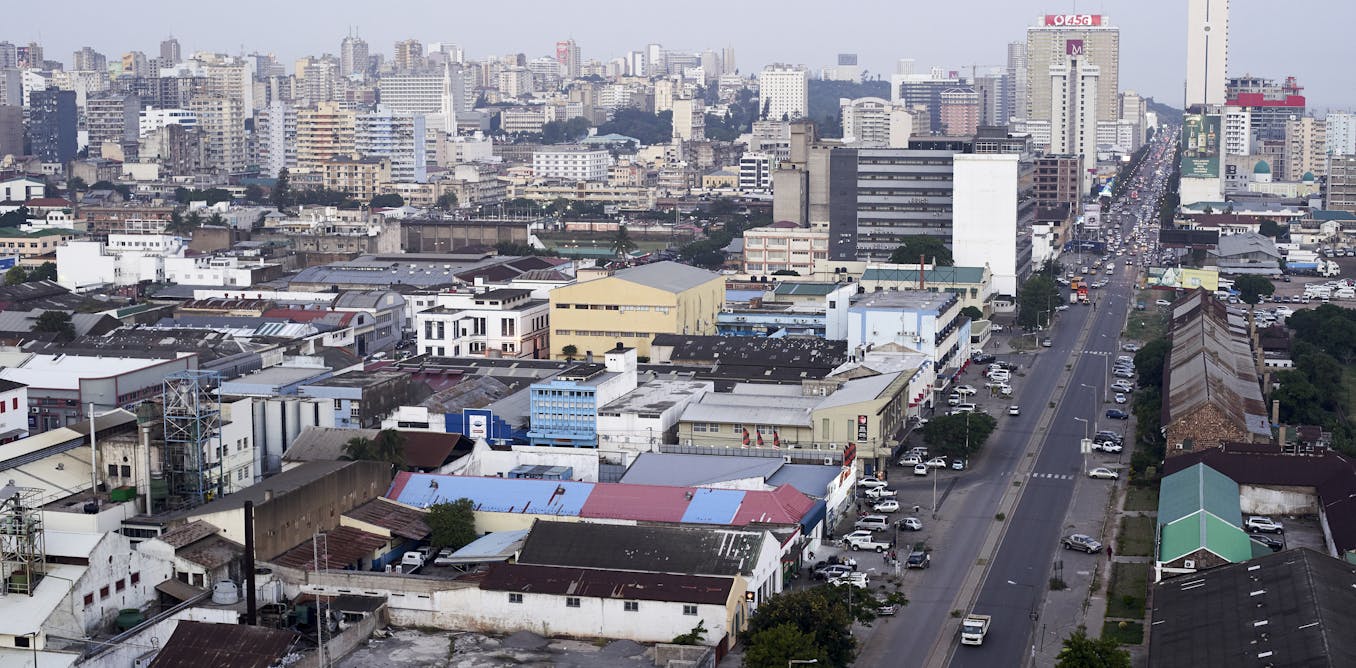
Mozambique ranks in the bottom 20 of the human development index. This measures a country’s progress based on key dimensions such as a long and healthy life and a decent standard of living. Nearly two-thirds of Mozambicans – 18.9 million people – live below the national poverty line of US$0.70-a-day.
The country also struggles to finance public spending, consistently running state budget deficits . At the same time it also fails to spend all the money that’s been budgeted.
Mozambique’s frequent budget deficits are no surprise. The country has a rapidly growing population, increasing needs of the poor populations, dilapidated infrastructure, and very limited revenue generation.
In a recent study on budget credibility in Mozambique we explored how the government’s challenges in meeting its revenue and expenditure targets harm the overall economy. And we suggest solutions.
Our study focused on public expenditures on the social sector. This included education, health, social protection and public works (which includes water and sanitation). All are vital for human capital generation and poverty reduction. The social sector accounts for 40% of budgeted expenditure. Education is the largest at about 20% of the overall pie.
Our study introduces – and successfully tests – a simple method that can be easily applied by budget oversight entities. This includes the parliament budget oversight unit and the accounts court. It can also be applied by planning units within ministries, especially the ministry of finance. Finally, it can be used by civil society budget watchdogs, as it relies on public information.
Adopting it will provide tools to improve budget management in turn leading to more credible budget execution.
Assessing public financial management
The Public Expenditure and Financial Accountability programme was initiated in 2001 by the European Commission, International Monetary Fund, World Bank, and the governments of France, Norway, Switzerland and the UK. The aim was is to improve fiscal outcomes. It has conducted 533 assessments in 155 countries, including 47 countries in sub-Saharan Africa. Ten assessments have been completed in Mozambique.
The programme defines budget credibility as the extent to which the government’s budget is realistic and implemented as intended. A credible budget reassures a range of stakeholders on the predictability of public expenditure and services. This includes taxpayers, donors and lenders, the firms that supply the government, public workers and the recipients of public services.
The credibility question
To measure the credibility of the budget in Mozambique, we used publicly available state budget data. We looked at both planned spending and actual execution.
In its previous assessments, the Public Expenditure and Financial Accountability programme had identified several weaknesses. These included deviations, sector-specific variability, revenue shortfalls and mid-year budget adjustments.
However, these insights didn’t explore the origins of the underlying budget discrepancies. The assessments therefore didn’t allow for in-depth insights.
In our study, we further analysed the credibility of the budget measured along expenditure types and the fiscal year.
Our findings revealed consistent under-execution of budgeted expenditures. This was the case even in years with sufficient revenue. Significant disparities existed along sectors. For example, education and health showed relatively credible budgets compared to public works, social protection and overall non-social expenditures.
A comparison between types of expenditure showed interesting patterns. An example is the investment expenditures in social sectors (such as schools, health facilities, water, and sanitation). These were primarily externally funded, showed higher volatility and lower credibility than current expenditures. Current expenditures include teachers’ payments and, more generally, overall salaries.
We also found a strong indication of resource reallocation outside of regular budgetary rules. For example, we found a suggestion that resources initially allocated for investments were redirected to fund current expenditures.
Finally, we found no strong evidence that mid-fiscal year budget adjustments improved reliability. This was in line with Public Expenditure and Financial Accountability reports.
Causes and potential solutions
The Government of Mozambique’s State Budget Account attributes budget inconsistencies to two main factors.
On one hand, slower economic growth and inefficient tax collection lead to revenue shortfalls. On the other, there were expenditure overruns due to a range of developments. These included natural disasters, health shocks (such as COVID-19), inflation, exchange rate fluctuations and delays in donor disbursements. Administrative and logistical issues that delayed projects also played a role.
The government has taken steps to mitigate these vulnerabilities. These include:
- establishing a reserve fund under the new sovereign fund
- increasing tax collection
- it has initiated VAT reform. This was suggested by the IMF.
These efforts are coupled with measures to address expenditure overruns. These include improving transparency and accountability in public budgets. They also include efforts to limit the overall public sector wage expenditure.
Our study recommends additional strategies to boost budget credibility:
Sectoral focus: enhance expenditure targeting in social sectors. This includes education, health, social protection and social work. And improve related budgeting processes
Enhanced investment management: strengthen oversight mechanisms for externally financed projects. The aim would be to reduce fund diversion to unplanned purposes. And better alignment with long term development goals
Budget adjustments reassessment: focus mid-fiscal-year budget adjustments on strategic reallocation rather than ad-hoc adjustments
Improved monitoring: implement a system that enables the Ministry of Economy and Finance to identify areas for improvement, potential quick wins and best practices
Budget credibility is crucial for Mozambique’s economic development and public trust. Effective budget management ensures transparency, predictability, and accountability. All are essential for sustainable growth.
This is an modified version of a blog, Budget credibility in Mozambique – challenges and solutions, originally published by UNU-WIDER.
An extended discussion of the topics covered in the blog, Understanding Mozambique’s budget credibility issues and solutions, was published by the International Growth Centre (IGC).![]()
Felix Mambo, Country Economist – IGC, London School of Economics and Political Science and Ricardo Jorge Moreira Goulão Santos, Research Fellow, United Nations University
This article is republished from The Conversation under a Creative Commons license.


